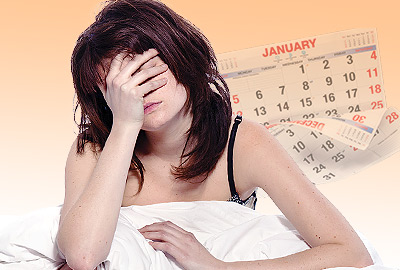
Menopause is a natural and unavoidable stage in a woman's life, and the experience can be very different for everybody. During the transitional period between fertility and infertility, the production of three sex hormones is disrupted.
The fluctuation in the levels of estrogen, progesterone, and testosterone is the primary reason why women suffer from various menopausal symptoms such as night sweats. However, not all women experience them. So, how common are night sweats and should you expect to experience them? Read on for answers to your questions.
What Are Night Sweats?
Night sweats are the nocturnal version of hot flashes, another common menopausal symptom. They are characterized as sudden and intense moments of heat that can cause sweating, heart palpitations, flushing of the face and body, headaches, and nausea. The symptoms vary for each woman and can range from mild to severe. As a result of night sweats, women tend to complain of disrupted sleep, fatigue, and irritability.

As the body slowly stops ovulating, the imbalance of hormones causes the hypothalamus — the part of the brain that regulates temperature — to believe that the body is too hot and needs to cool down. Consequently, women experience the symptoms of a night sweat.
Why Am I Experiencing Night Sweats?
It is neither normal nor abnormal for a menopausal woman to have night sweats. Some women suffer from many menopausal symptoms, while others sail through the transitional phase without any problems. Approximately 70% of menopausal women will have night sweats. If you do not experience night sweats, don't worry. In fact, not suffering from night sweats and being able to sleep soundly without interruptions is somewhat lucky during menopause.
Some women are more prone to night sweats, and others are more likely to trigger episodes with certain lifestyle habits. Environmental factors like excess bedding and warm rooms can affect your body temperature. Other triggers include stress and anxiety, the consumption of spicy foods and hot beverages, and smoking. If you aren't experiencing night sweats, it may be due to a lack of environmental triggers.
Are There Any Benefits to Night Sweats?

Research on whether or not night sweats are beneficial is limited. Women who suffer from night sweats may tell you that you are fortunate because you get to sleep longer and without interruptions or excessive sweating. However, some studies have shown that women who experience night sweats are less likely to develop cardiovascular diseases and cancer later in life.
More Information
Whether you are suffering from night sweats or not, always consider your lifestyle and any environmental triggers that may increase your possibility of having a night sweat episode. To alleviate the effects of night sweats, consider making lifestyle changes first. They are simple, risk free and noninvasive. However, if you're night sweats are severe and you are considering alternative treatments, always consult with your doctor.
For more information on night sweats and how to treat them, follow the links below.
Sources
- Boston Women's Health Collective. "Hot Flashes, Night Sweats and Sleep Disturbances". Our Bodies, Ourselves, 2006.
- The National Institute of Health. "Signs of the Menopausal Transition" www.nih.gov
- Von Muhlen, DG, et al. "A community-based study of menopause symptoms and estrogen replacement in older women". Maturitas. Sept 1995; 22(2):71-8.



